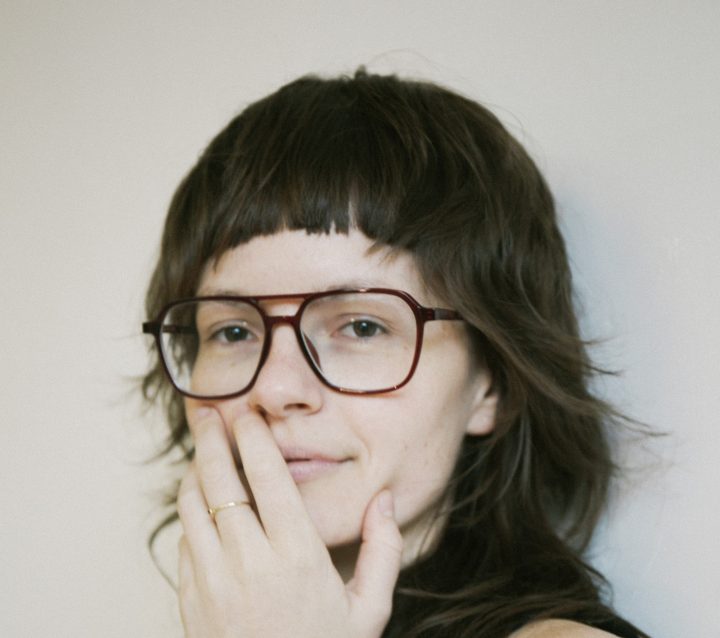Please tell us your story! How did you get to where you are today?
I grew up in South Africa, a land of singing and wildness and mothers and spirit, and spent most of my younger life in deep thought (unfortunately for my nervous system, but fortunately for an arts practice). When I left school I was signed up to study actuarial science on a scholarship but I quickly exercised my pent-up rebellion and went inwards to the heart of Joburg CBD to study jazz theory and linguistics. Something got the best of me in that era and I ended up dropping out and moving to Australia on something of a whim – to play songs and figure myself out away from the contexts that I was raised and a bit repressed by. I have been here now for 8+ years, working as a copywriter and musician and slowly re-learning myself. The last few years I have done all I can to take my life and my writing more seriously, and in equal measure with more silliness, out of self-respect and self-belief but also a safe looseness I didn’t quite experience as a child.
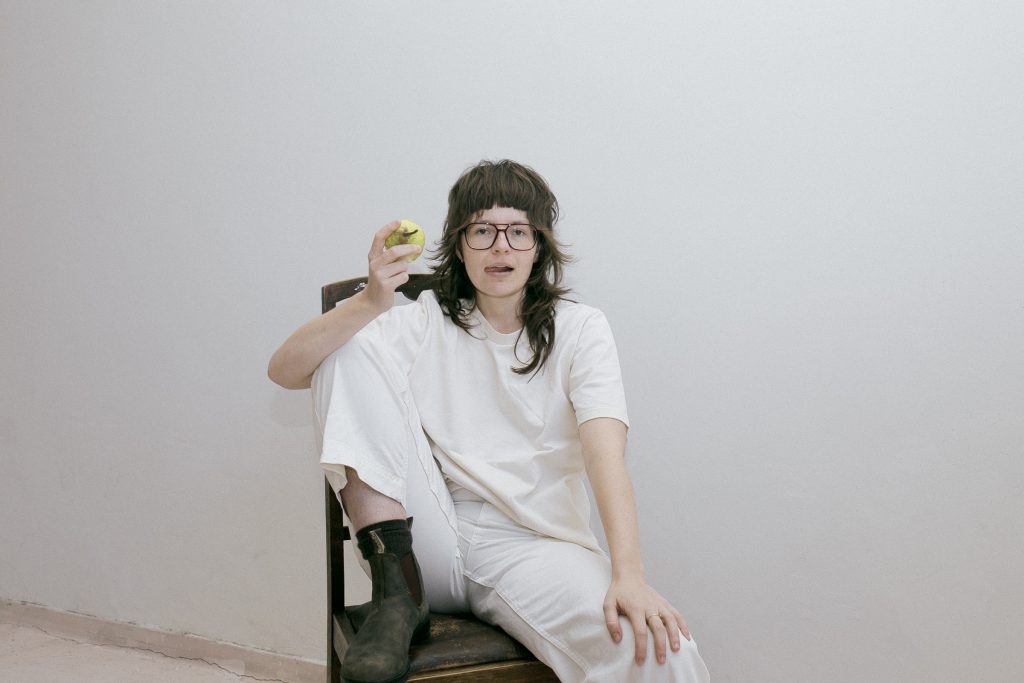
Tell us about “Some Kind of Control”…..
This record is in many ways a study of control and agency – my own and my issues with gripping on too tight, but also an exposing look at who controls us externally and politically and environmentally. There are love songs on there, sure, but mostly it is tapping into something a little more complex and maybe even more intimate – my own body and relationship to it, our queerness, our defiance, and power.
“trust the feeling you give yourself when you are playing alone in your room – if there is something spiritual happening there”
For those who aren’t familiar with your work, how would you describe it?
The one thing I cannot find the words for is describing my own art (i struggle similarly with ‘seeing’ my own appearance – maybe a small missing link in the brain, or maybe just the point of making art instead of talking about it). But a journalist Bernard Zuel recently wrote this, which I found helpful: “Everything is self-effacing, taking up space in an area that might be called folk, though mainly because it’s not rock, not dance, not electronic, not country, so by a process of elimination must be … folk. In truth its form remains pop music at its most intimate in the same way and the same places Laura Marling and Aldous Harding exist.”
Compared to your previous bodies of work, what growth has happened since to inspire this current album?
I feel like I became an entirely different person, but probably it was just a natural and somewhat whip-lashy, overdue avalanche of growing up: owning my sexuality, owning solitude and quietness (this record is very quiet, even when it is full and moving, and my voice and lyrics went more inwards, more witty, more cohesive and more accepting. No more “babysitting other people’s arguments instead of my own.” Instead of being wrought with angst like “I’m gonna die with this frown on my face” was, “Some Kind Of Control” is mostly measured, confident, powerful, stating things without question or shame. Getting myself out of the bad situations and really doing the post-work, no flailing around for answers. I learnt to write songs in new ways and did a lot of listening to other writers and poets about finding new ways into the song (I am so grateful for other people’s voices in this record – both audible and internal).
“I hope Australia’s music scene un-cliques itself in order to widen its inclusion onstage and backstage.”
“I hope to see more diverse lineups in terms of race, culture, genre, language, age.”
Your headline album launch in April sold out? How does it feel & how has the Naarm (Melbourne) music scene helped foster your creativity?
So here I am I guess (although we know there is no such thing as made it, and the made it ceiling keeping growing taller anyway – but it feels special and moving to reflect on the decade that got me here). Naarm has been my parent and friend and family. I have found all I could need here in terms of a safe, accepting community (I don’t think many people know how queer the inner north of Melbourne is until you live literally anywhere else haha). And little Ruby could never have imagined this many music venues and incredible peers and confidants and muses to write better and sing more and feel more in it, every day.
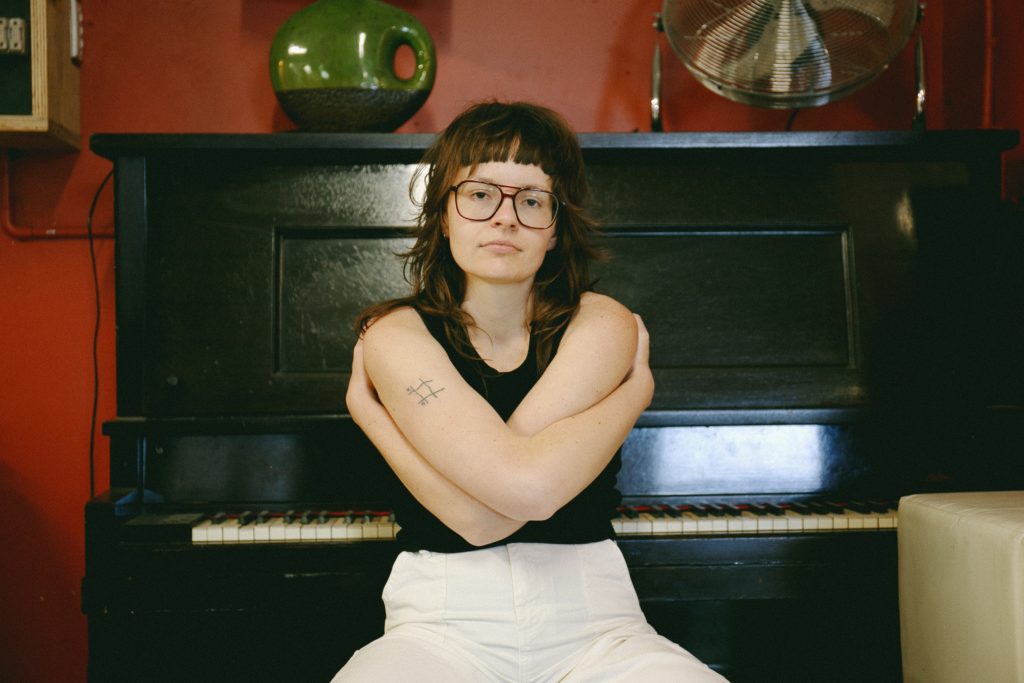
Why did you want to get into the music industry?
I don’t remember ‘choosing’ it, I just remember a big knowing that I was built to make songs, and then feeling very buoyed and inspired by watching other women live their lives like that – telling their stories and swanning around onstage using their whole bodies to make a point (I’m not a swanner, more of a duck haha). I still sometimes regret joining the ‘industry’ side of things – it is hard on your sense of self, hard on your eyes and ear and very hard on your sense of routine or home or physical, hands-in-the-garden type achievement every day. But it is my greatest privilege to get to spend whole months playing shows (the drama girl’s dream) and travelling the world with a (miniscule) salary of sorts taking me there.
Let’s talk about the highs vs the lows of your career. What is your greatest achievement? Are there any moments you would like to share that you learnt greatly from?
My greatest achievement is repeated and it’s always in the first few minutes after writing a good song or recording a moving take of it – that little pocket of pride and expansion and spiritual connection will always feel like the ultimate achievement and I’m glad I get to experience it again and again. In terms of lows, I have had some awful weeks where I have mis-felt the acclaim of a release as pressure (and usually, for some reason, it manifests as shame about my physical appearance, or public speaking, or not being ‘cool’ enough). It’s such a weird experience because I see myself as very internally-driven and confident, but releasing something sucks me to someplace else. In those times, I never really doubt the art in itself, but I doubt myself as a person on display, and those weeks can get pretty dark. I’m learning how to separate my body from it, and navigate those troughs more sustainably. I’ll take whatever advice I can get haha.
Who are your top 3 artists to watch?
If you mean physically, live? If so, it’s those artists who make my heart feel like it will burst
Annie-Rose Maloney (she wrecks me every time)
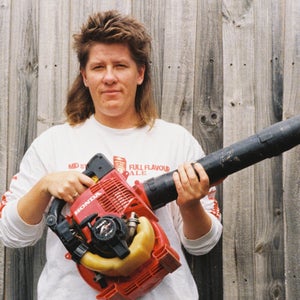
Nakhane (the sexiest, most queer and powerful experience I’ve had)
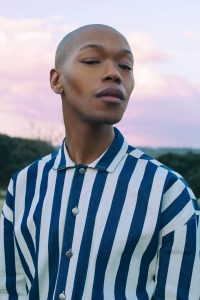
Mimi Gilbert (a literal angel) come to mind. I guess they’d also be my ‘artists to watch’ figuratively in their careers so that is a good answer from me haha.
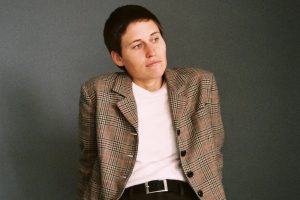
“I’d love to see government-funded or more readily available is financial accounting and legal support for growing independent artists”
Who has been your biggest champion in your career?
Early on, this one producer Darryl Torr in Joburg (Soweto Gospel Choir) who really made me believe in myself. I entered this Converse ‘Get Out The Garage’ competition and I didn’t win, but he took me under his wing and let me work in his recording studio rolling cables and doing old-school html website building in return for heaps of free studio time in one of the best studios in Joburg. I will always be very grateful to him and people like him. But always, and perhaps even more soaringly, it has been my friends, most honorably Ntokozo Mzimela (who performs as Orah) who I went to school with and made music what it is inside me. These days I’m also very lucky to have a partner who has literally quit their job to come on tour with me and listens to everything I make, even the absolute shambles that will never see the light of day.
What is the best piece of life advice you’ve ever received?
I stole it from a Mary Oliver poem (of course), and it is “to pay attention, that is our endless and proper work.”
What would you tell your younger self if you could tell them anything?
You can leave whenever you want to. And don’t bother with aesthetics, they are tricky. I still need to hear those things today haha.
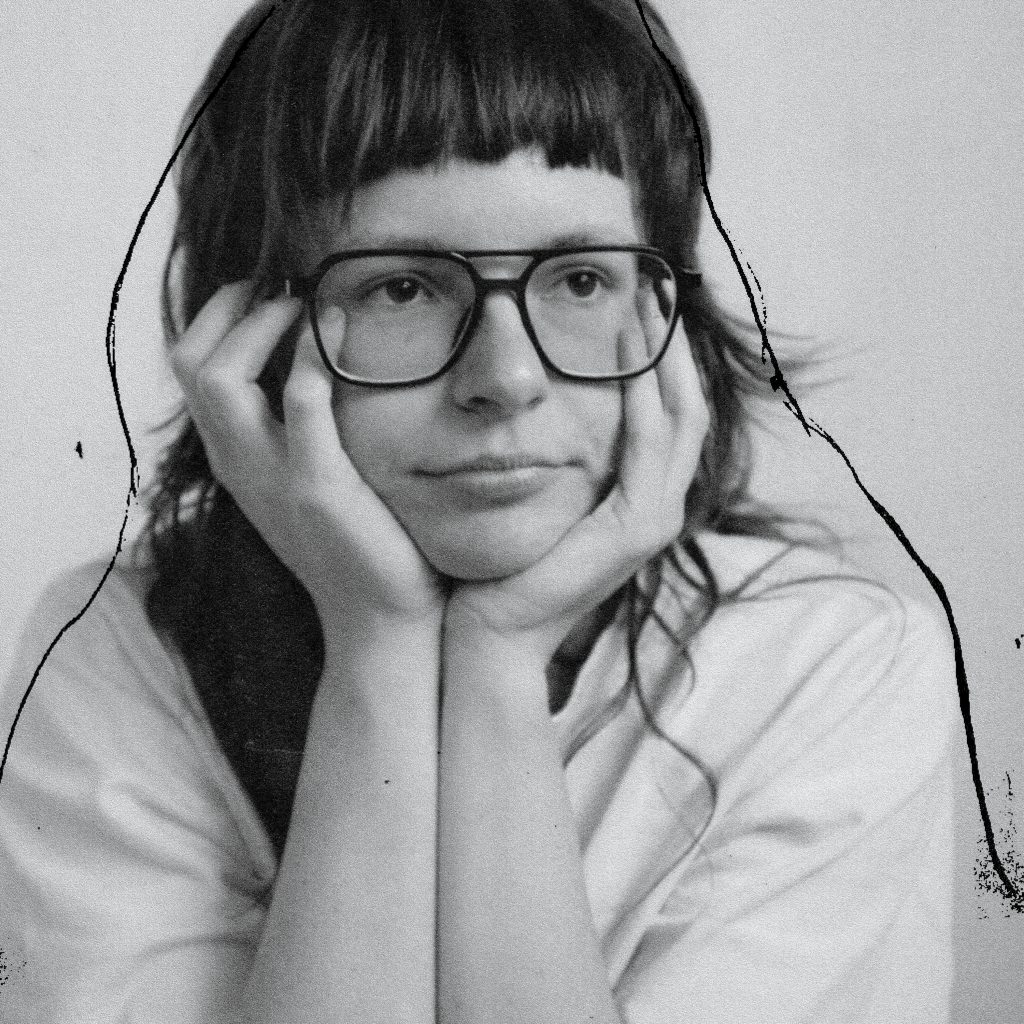
What is your big picture career goal?
I actually had never thought about this until recently I was rambling onstage and spluttered out “I don’t have career goals, I only have place goals.” And as soon as I said it I knew it was the most correct thing I’d said yet about my career. I just want to connect with and see and play music in as many beautiful complex spaces as possible. So I have travel and touring goals, and venue goals, but they’re definitely not attached to fame or a name in lights or the size of the room. I also like feeling like I’ve made a good poem, so any accolades or recognition about my lyricism or poetry will feel like nirvana inside me, but I don’t have any specifics around those goals.
Who are your role models in the industry be they local or international?
Laura Marling, Adrianne Lenker and Joan Armatrading – for their authenticity, prolificness and constant evolution.
What are examples of tough conversations that the Australian Music Industry isn’t having that it could greatly benefit from if confronted?
Exploitation by managers of artists. Or labels maybe, but I’m not in that world. How unhappy and stressed a lot of musicians are in the background – what is that about and why are we pretending it’s all sun and accolades when it’s often a whole lot of feeling nauseous. A living wage for artists (it still feels crazy to me to say that, which is probably why we need to have that conversation – because in a country like Australia that isn’t actually that crazy). And maybe also the fact that Australia tends to still abide by some unwritten genre rules where anything not shiny and ‘Australian’ enough doesn’t really fit the bill. I listen to weird stuff and I wish it wasn’t labelled weird here.
“Whenever I have entered spaces knowing it’s because I’m queer or a woman/non-binary person, I’ve felt this weird pressure to become more femme, or gay – that my reality is not enough – and when I feel that sensation I know that I’ve not been included for the right reasons.”
Do you think the Australian Music Industry is where it needs to be in regards to diversity? If yes or no, what would you like to see/have you seen?
No we’re not there – although we are doing pretty well on the gender front compared to where I grew up, and I think it’s important to acknowledge the power women, gender non-conforming and queer folk hold in music (especially in Naarm). I mean, I literally hardly play shows with men (RIP). But I hope Australia’s music scene un-cliques itself in order to widen its inclusion onstage and backstage – it’s so easy to just work with and share line-ups with people like you or who like you, but I find those shows slightly boring, even when I play them I’m always like, we are not connecting across anything, and isn’t that the point? So I hope to see more diverse lineups in terms of race, culture, genre, language, age – I’m including a lot of poets on my tour to hear from different perspectives and different styles of writing. Plus, the poetry scene is inherently a little more diverse and connected to itself and its identities. I grew up in an industry where white / english-speaking musicians were essentially the minority, and I think places like Australia could learn a lot from those environments in terms of creating way more rogue and vibrant shows, labels, radio stations, teams.
Does your area of the industry have adequate infrastructure that is supported by the Government? If not, what would you like to see more of?
You know what I’d love to see government-funded or more readily available is financial accounting and legal support for growing independent artists – there are so many royalty splits and contracts in the back ends of things and it’s just so expensive to hire a team to do all that for you well.
Would you like to give a shout out to anyone in the industry on our platform?
Jack River, for using what was a music platform to now educate and lobby and fight for people’s rights and voting literacy in Australia – especially women.
Why does representation matter?
If Leona Lewis or Patti Smith or Big Thief had not run, I would not be walking. Most of us have to see what is possible before we can try do it – very few of us feel ready to grip a whole life by the horns when no one has shown us that it’s okay, allowed, cool even for someone like us to do it.
“A living wage for artists (it still feels crazy to me to say that, which is probably why we need to have that conversation – because in a country like Australia that isn’t actually that crazy.”
What does true allyship look like to you?
Not just moral support, but moral action – voting with, showing up with, speaking with.
What does a safespace look like to you?
A place where I don’t have to take a beta blocker or a friend to enter, haha. A place where I can enter alone and 100% myself without fear of my voice or boundaries not being heard. If there are other people, it is people who are open to real connection and seeing each other in full – not critique or competition or exploitation.
Have you always felt safe in the industry?
Definitely not. The lyrics of ‘you should do this for a living’ explain that in more detail with regards to how men have treated me in the industry. But also more recently I have experienced truly ridiculous emails, conversations and situations with a host of different people in positions of power. It really is important, once you have sway, to use it gently.
“to pay attention, that is our endless and proper work.”
What is tokenisation?
The thing that makes you feel you have to become more of your ‘label’ in order to fit it. Whenever I have entered spaces knowing it’s because I’m queer or a woman/non-binary person, I’ve felt this weird pressure to become more femme, or gay – that my reality is not enough – and when I feel that sensation I know that I’ve not been included for the right reasons. A lot of people aren’t really listening to you when it’s tokenisation, they’re listening to your label.
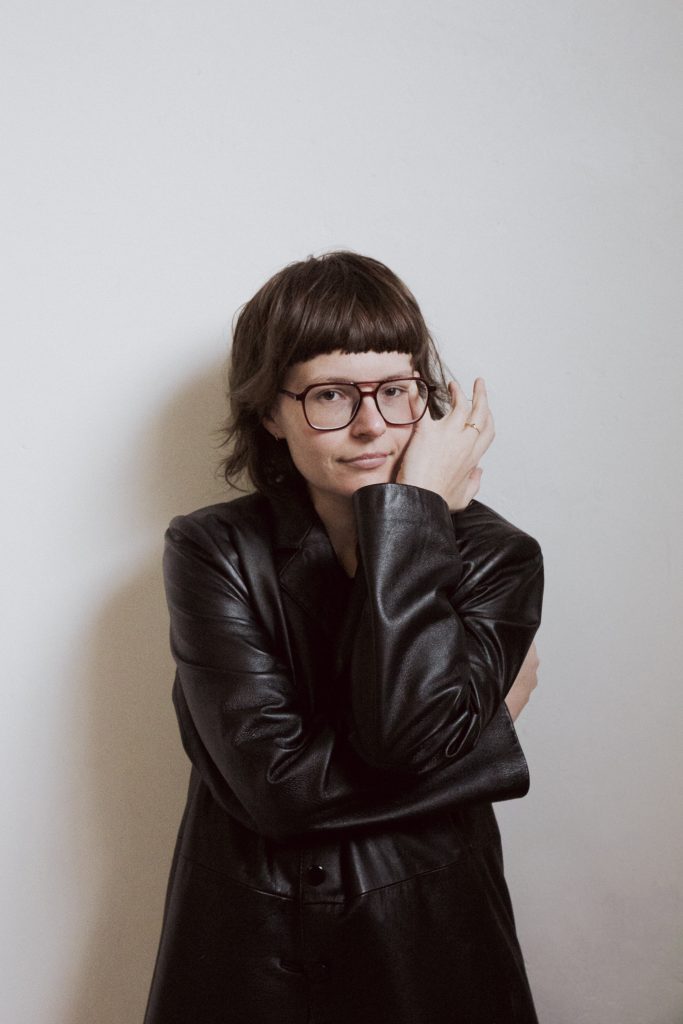
Music & activism have always gone hand in hand, when together it is powerful & influential? Why do you think that is so?
Music has connective power to reach inside someone, move them and change them – the perfect vessel to activate. Artists are also just inherently ready to reflect society, and when society sucks that comes out as protest songs or critique, and it’s heard by so many outside of that critical thinking bubble. I don’t think I will ever be able to unlink them in my mind – especially growing up in South Africa where music has been the tool of activism and protest and finding connection under oppression. Always.
Self identity & imposter syndrome are issues Women & GNC Folks in the industry struggle with. Have you faced this issue? If so/not, what tips can you give to encourage others to stand in their truth?
I don’t know if I identify with the term ‘imposter syndrome’ but I do feel like an ‘outsider’, and in many ways I am: getting nominated for the Australian Music Prize as a South African was really weird (although also very inclusive and beautiful). And I often feel like I don’t understand what I’m even playing on my instruments – even though I was classically trained I just don’t write with any theory in mind, and anyone talking about gear makes my head spin haha. For that reason I don’t really enjoy learning other people’s music unless it’s integrated into the very rogue style I play, which often sets me out of the ‘group’. I don’t know if I have very good advice except to trust the feeling you give yourself when you are playing alone in your room – if there is something spiritual happening there, I’m certain it’s happening someplace public and is worthy of being there. Someone once told me “there is space in the room for all of us.”
As an artist, is there a message you would like to give to others in the industry that don’t work in your line of work? Eg. Bookers, label leaders, producers, artists etc.
Mostly just that anything you can do to make it worth our money would be awesome haha. Unfortunately even when you hire a service in this industry, you have to do so much of the work yourself – interviews, accounting, writing writing writing, organising, emailing. As an independent artist, being able to feel like something has actually been taken off your plate is huge.
“Everything is self-effacing, taking up space in an area that might be called folk, though mainly because it’s not rock, not dance, not electronic, not country, so by a process of elimination must be … folk. In truth its form remains pop music at its most intimate in the same way and the same places Laura Marling and Aldous Harding exist.”
What does music mean to you?
Something bigger speaking. As Padraig O’Tuama puts it, ‘the poem’ (there is only one, big one) in translation.
What is the rest of 2025 shaping up to look like for you? Anything that you can let us in on?
I’ve just wrapped up driving around Australia on a very national and far-reaching tour, living in a roof-top tent on my ute and doing things very slowly, haha. I’m just about to start on my UK/EU leg in May, which is very exciting.
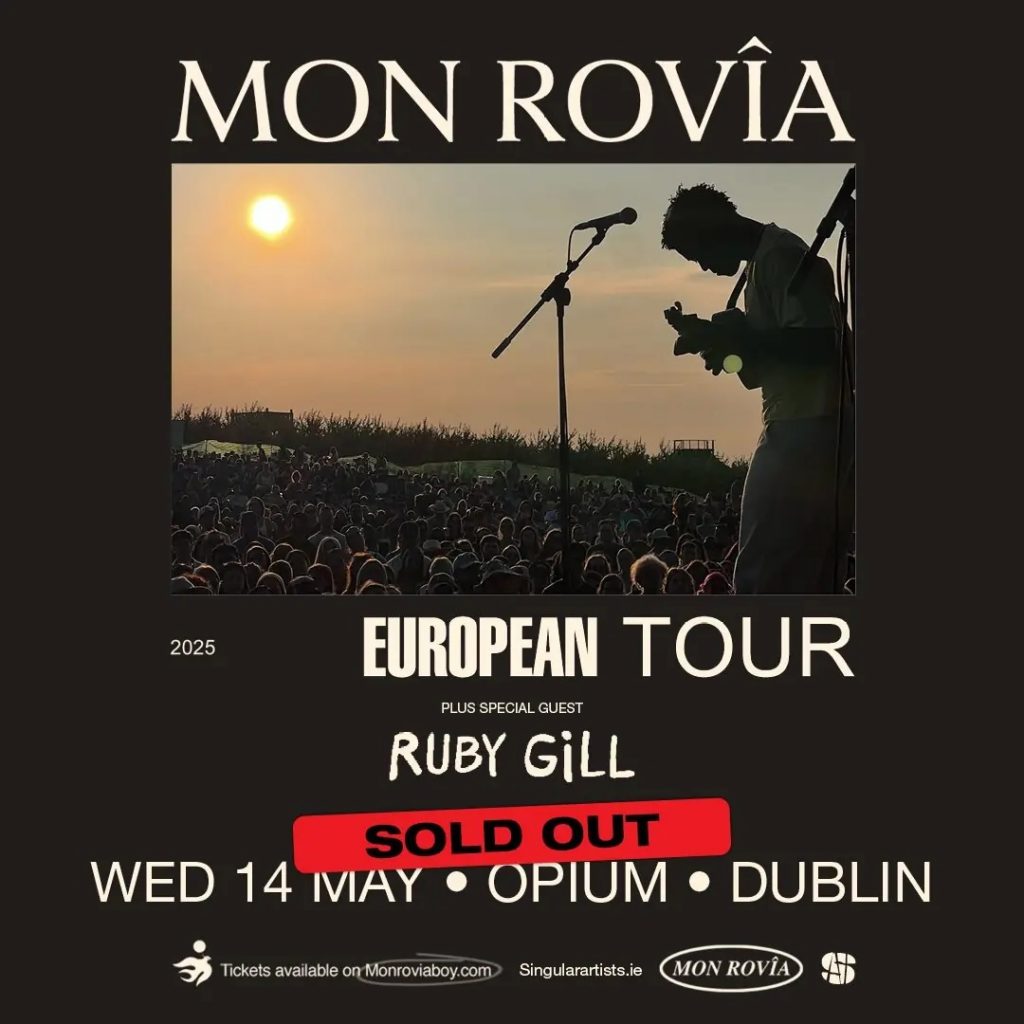
What is your go to song for Karaoke?
Romeo and Juliet – Dire Straits. It has proven to kill a mood though haha.
